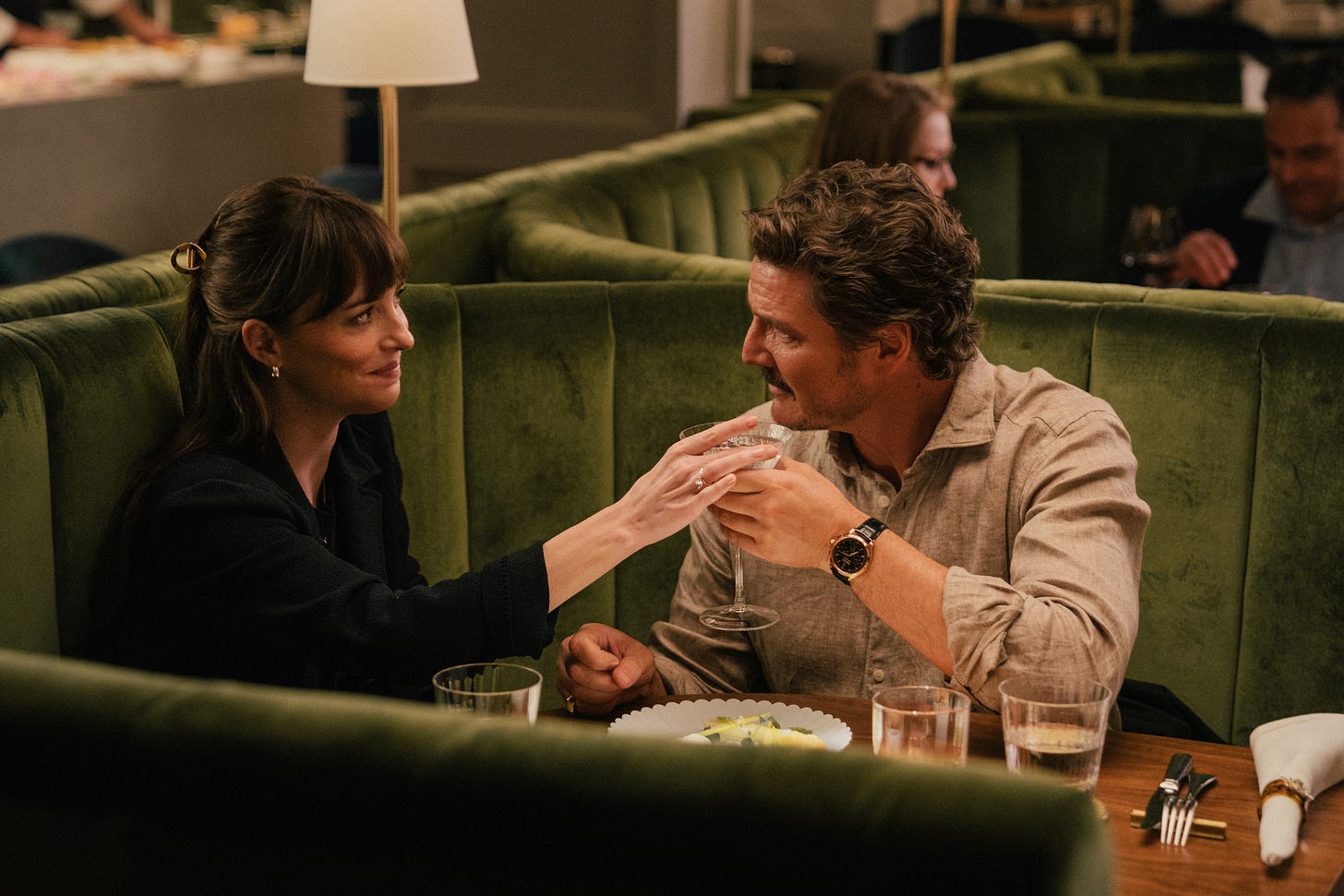I was talking to a friend of mine who is gearing up to script her second feature, always a pivotal moment for any creative. It’s a chance to solidify your voice, maybe even signal the kind of artist you intend to be. All of the ideas she floated sounded like natural extensions of first film, rooted in the same world and carrying forward its particular eccentricities.
Then we saw an actual second feature: Celine Song’s Materialists, a who-will-she choose romantic drama that reinforces the playwright-turned-filmmaker’s thematic preoccupations, (limited) cinematic style, and writing foibles—most troublingly, a resistance to crafting psychologically-rich characters.
In what’s less of a performance than a long, dispassionate sigh, Dakota Johnson, my least favorite nepo baby (so much wasted potential!), plays Lucy, a successful, high-end matchmaker with a hand in at least nine marriages, but not her own. Early in the film, her coworkers (she works at an agency called Adore, the only thing I will likely remember from this movie)—toast her on yet another proposal sparked by her careful calculations. After all, the secret to a good match she insists, is just math. Upon meeting a rich, single man Harry (Pedro Pascal), she describes her job in the most unsexy way possible as part undertaker and insurance agent—a cold equation of risk, compatibility, and return—and her clients in terms of bankable traits, as measurable, sortable, portfolios.
Keep reading with a 7-day free trial
Subscribe to MOVIEPUDDING to keep reading this post and get 7 days of free access to the full post archives.





